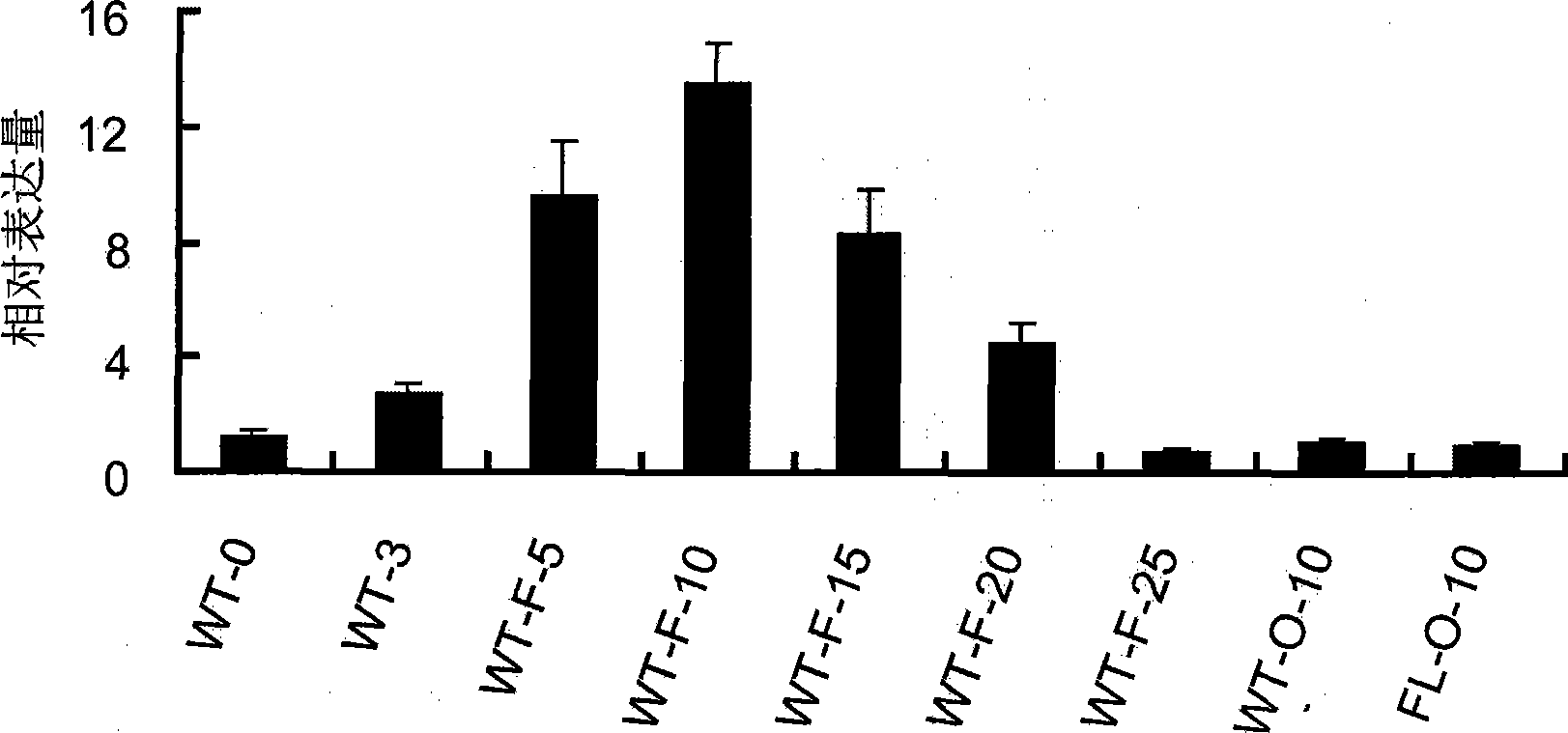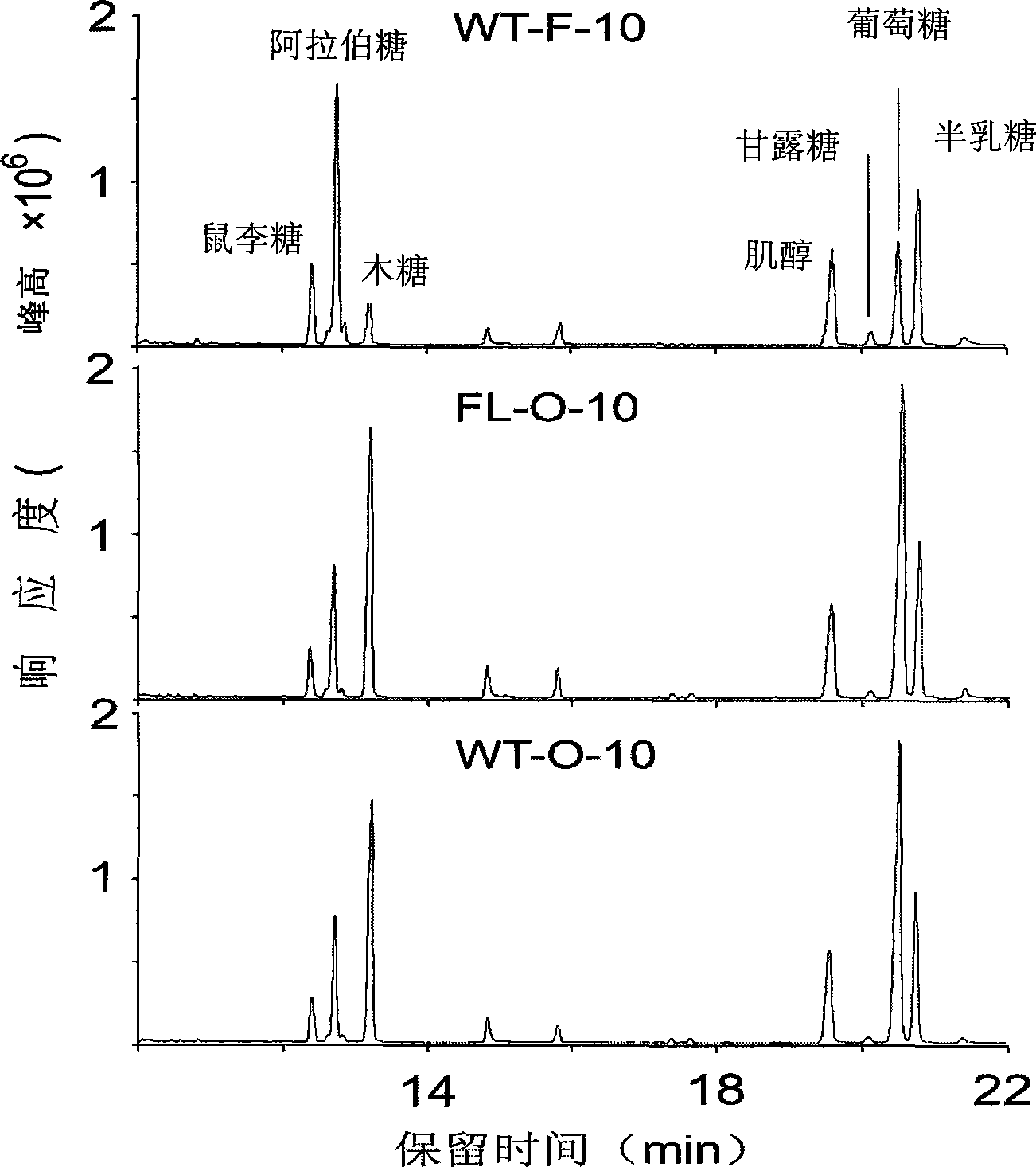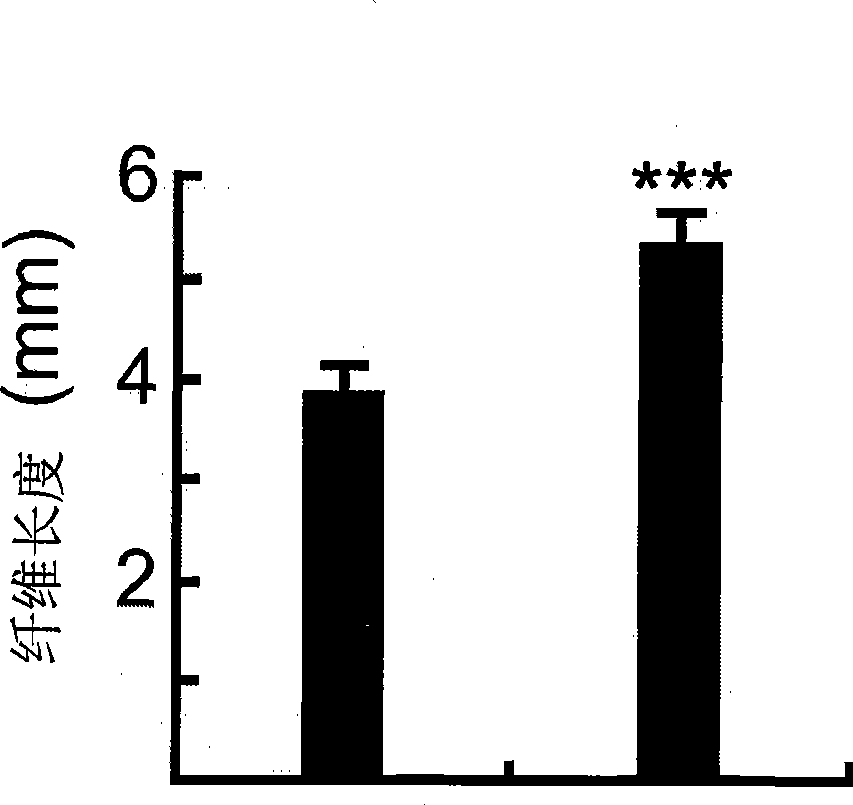Uridine diphosphate-4-one-6-deoxyglucose heterogeneous reductase and coding gene thereof and application
A uridine diphosphate rhamnose and gene technology, applied in the fields of oxidoreductase, application, genetic engineering, etc., can solve the problem of losing the stomata opening and closing function of isolated Commelina leaves, and achieve great economic value and application prospects , fiber length increase, the effect of improving quality and yield
- Summary
- Abstract
- Description
- Claims
- Application Information
AI Technical Summary
Problems solved by technology
Method used
Image
Examples
Embodiment 1
[0045] Example 1. Cloning of the gene encoding uridine diphosphate-4-keto-6-deoxyglucose isomeroreductase
[0046] 1. Cloning of GhUER1 gene
[0047] Select wild-type upland cotton variety Xuzhou 142 (WT) (National Mid-term Cotton Seed Bank of Cotton Research Institute, Chinese Academy of Agricultural Sciences) fibers 10 days after flowering, extract total RNA, and extract total RNA according to the RNA gentsTotal RNA Isolation System kit of Promega Company conduct. Take 5g of total RNA and reverse transcribe to obtain one strand of cDNA. The reaction system is as follows:
[0048] Total RNA 10 μL (5 μg), 0ligo (dT) (20 μmol / L) 1.5 μL, 10× buffer 2.5 μL, dNTPmix (2.5 mmol / L) 2 μL, sterile water 8 μL.
[0049] Add 1 μL (200U) SuperScript to the reaction system after bathing in water at 42°C for 1 min TM IIRT, mixed gently, incubated at 42°C for 50min; bathed in water at 70°C for 15min, terminated the reaction; obtained the first strand of cDNA.
[0050] Primers were design...
PUM
 Login to View More
Login to View More Abstract
Description
Claims
Application Information
 Login to View More
Login to View More - R&D
- Intellectual Property
- Life Sciences
- Materials
- Tech Scout
- Unparalleled Data Quality
- Higher Quality Content
- 60% Fewer Hallucinations
Browse by: Latest US Patents, China's latest patents, Technical Efficacy Thesaurus, Application Domain, Technology Topic, Popular Technical Reports.
© 2025 PatSnap. All rights reserved.Legal|Privacy policy|Modern Slavery Act Transparency Statement|Sitemap|About US| Contact US: help@patsnap.com



